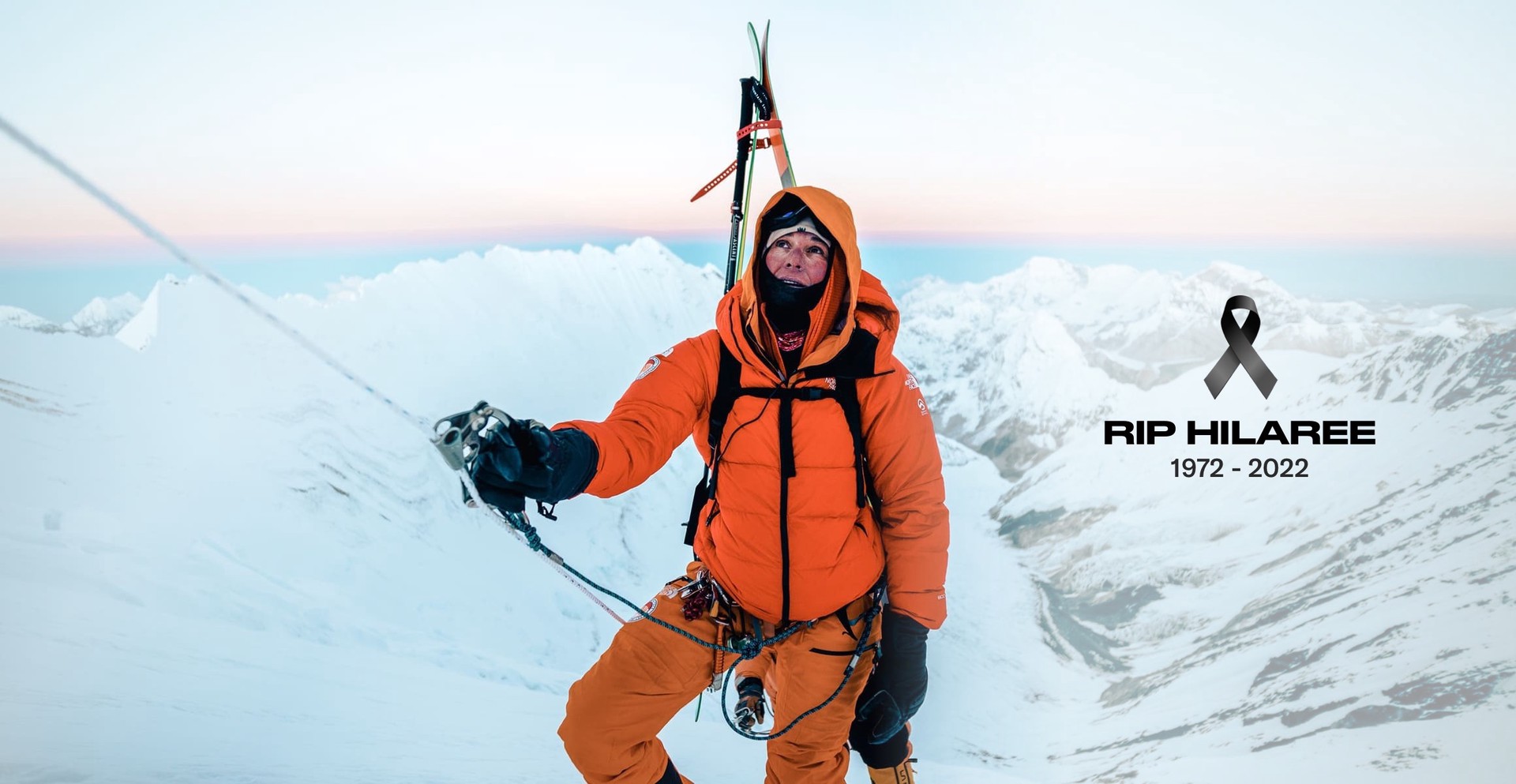September, 2022
We are heartbroken at the passing of Hilaree. She was not only a badass, competent
mountaineer, but she opened the way and paved the path for so many women to believe in
ourselves and what we can achieve. She was humble, kind and real. She will be missed.
Hilaree Nelson is known as the world’s best female ski mountaineer—and it’s high time we drop the qualifier. Among her long list of firsts, she, along with partner Jim Morrison, recently claimed the first ski descent of the 27,940-foot Lhotse Couloir, an impossibly steep and narrow crack off the fourth highest summit in the world.
The most amazing thing about her feats, though, is that she accomplishes them while raising two pre-teen boys. To say this is rare is a gross understatement. First, there are very few professional ski mountaineers. Fewer still who are women. And those who are moms? Well, that pretty much boils down to Hilaree.
I caught up with her recently on the phone from her Telluride home to find out how she does it all. When she picked up, she immediately asked me to hold while she answered urgent questions from her kids. It was the tail end of the COVID 19 quarantine, and she’d been holed up with Quinn, 12, and Grayden, 10, for nearly two months. I could tell by the edge of her voice that even superheroes have their days. She walked outside and breathed a big sigh.
“So, you want to talk about me being an awesome mom, right?” she said, laughing. Here’s what she had to say.
I know people ask you (and never your male peers) this all the time, but how do you balance it all?
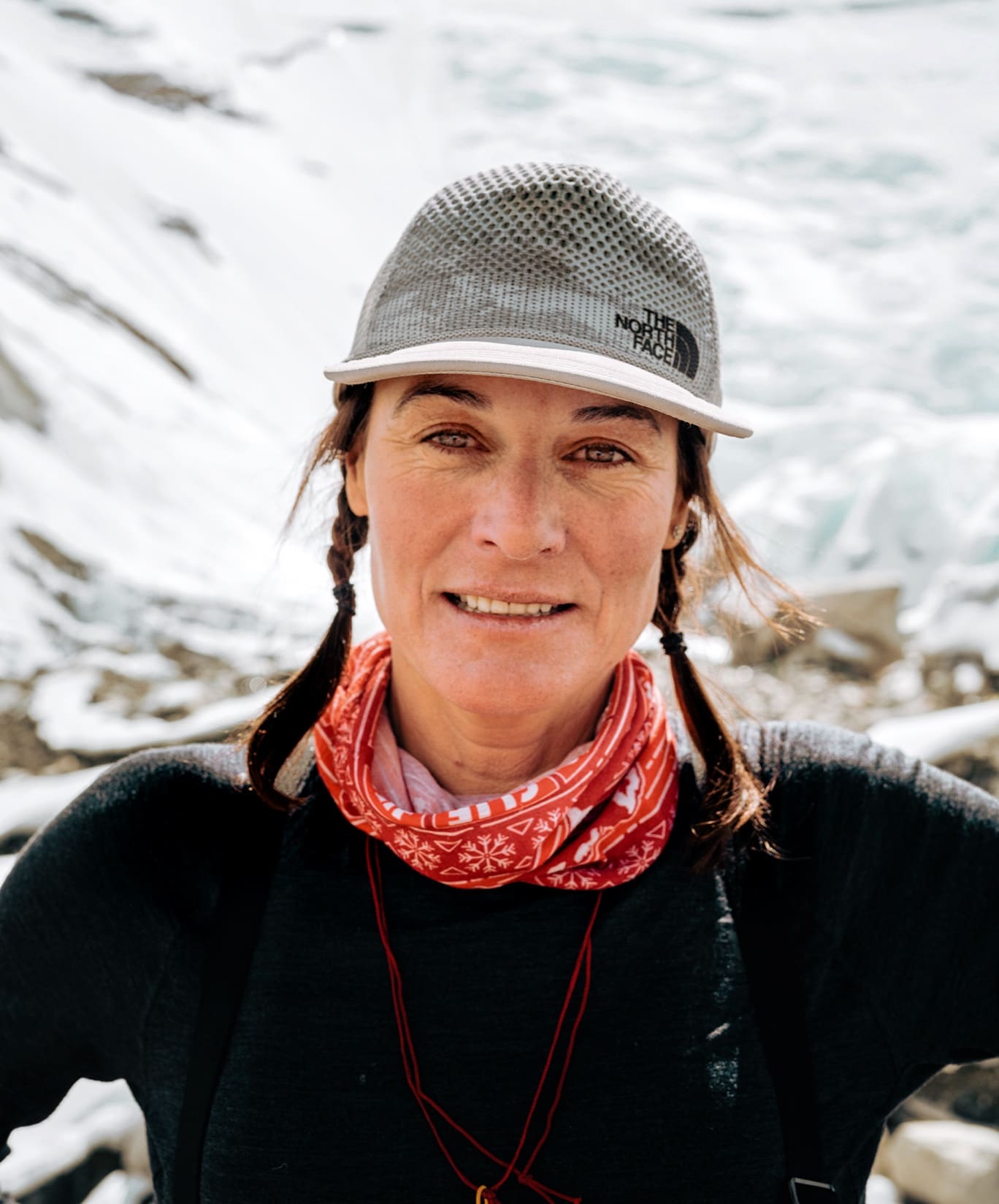
Did you know when you decided to have kids that you wanted to continue to pursue being a professional ski mountaineer?
No. When I was trying to get pregnant, I was all over the map. And it took four years with my first kid, so I had a lot of time to think about it. It was a stressful time. I didn’t know what my reality was going to look like. I came out on the other side with a real drive to continue to be an athlete. My biggest advice to athletes who are becoming new moms is to not put the cart before the horse, because you don’t know who you are going be after you become a mom.
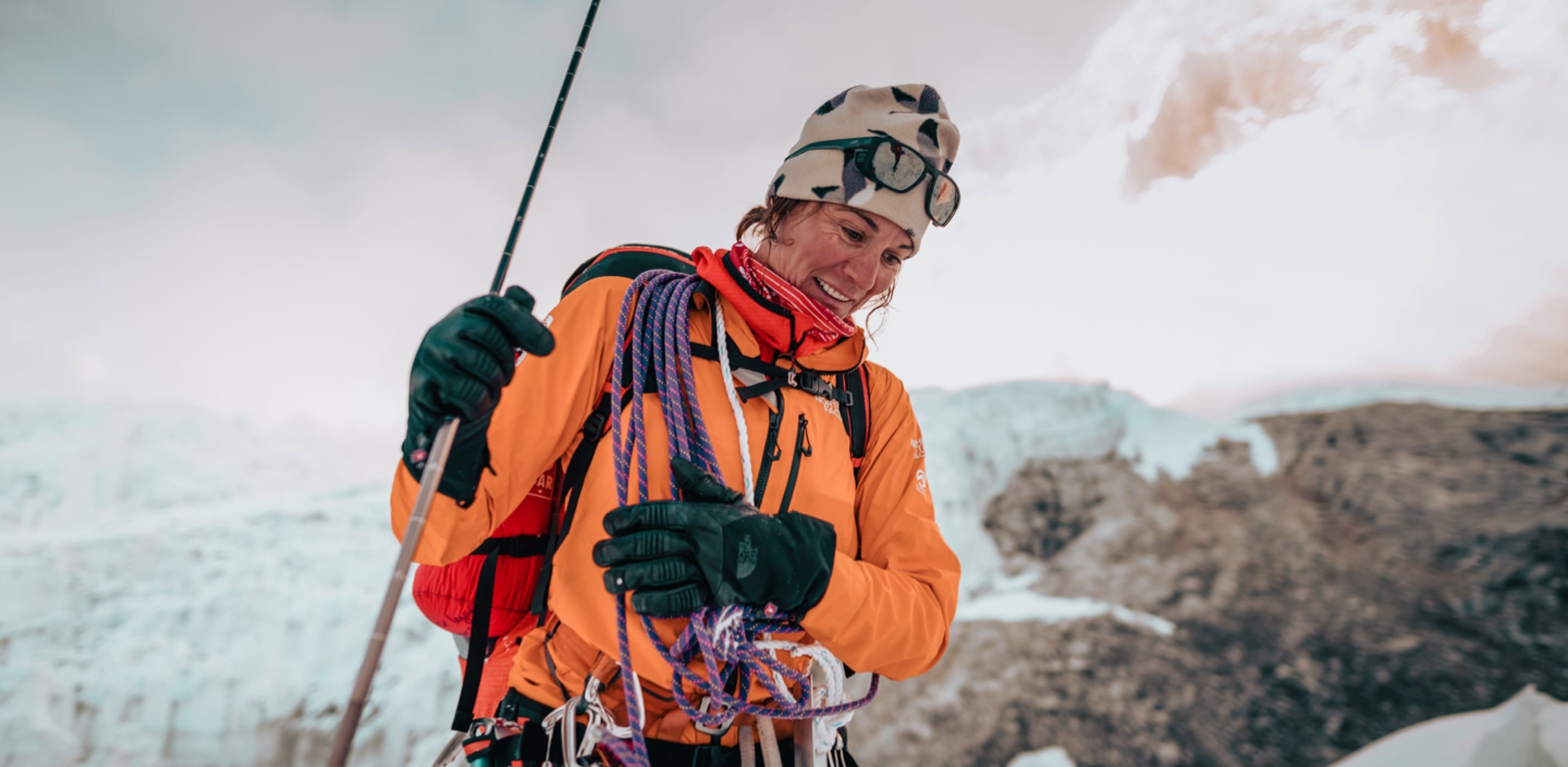
You go on months-long expeditions where you are not only away from your kids, but you are risking your life. How do you handle the mom-guilt?
The self-flagellation was so intense for the first few years—I don’t know if I could do it again. I went to Pakistan when my first son was 10 months old for eight weeks. I had a ton of doubt. At that time in my climbing career, I wasn’t earning a ton of money doing it. Is there a difference if I was just climbing and skiing scary things for fun, or is it more justifiable if that’s how I earn a living? Now, I do both. But at that time, it was really tough to justify it and continue. I had doubts every day.
How did you push through it?
I knew from my friends that the guilt is there whether you’re a stay-at-home mom or a mountain climber. It’s there for every mother I know. We feel like we’re not doing something right, that there’s the potential of ruining our kids’ lives. I grew up in a very traditional family and was looking at life from that point of view. I wanted to be the perfect wife, have 2.5 kids, and be the perfect mom. Even to have a career as a mom wasn’t something I saw growing up. I had to learn how to let go and breathe through things. I can now separate from the guilt long enough to see that it’s exaggerated, and it’s all of my own making. I can’t say I navigated it well, but I did it. And here I am today.
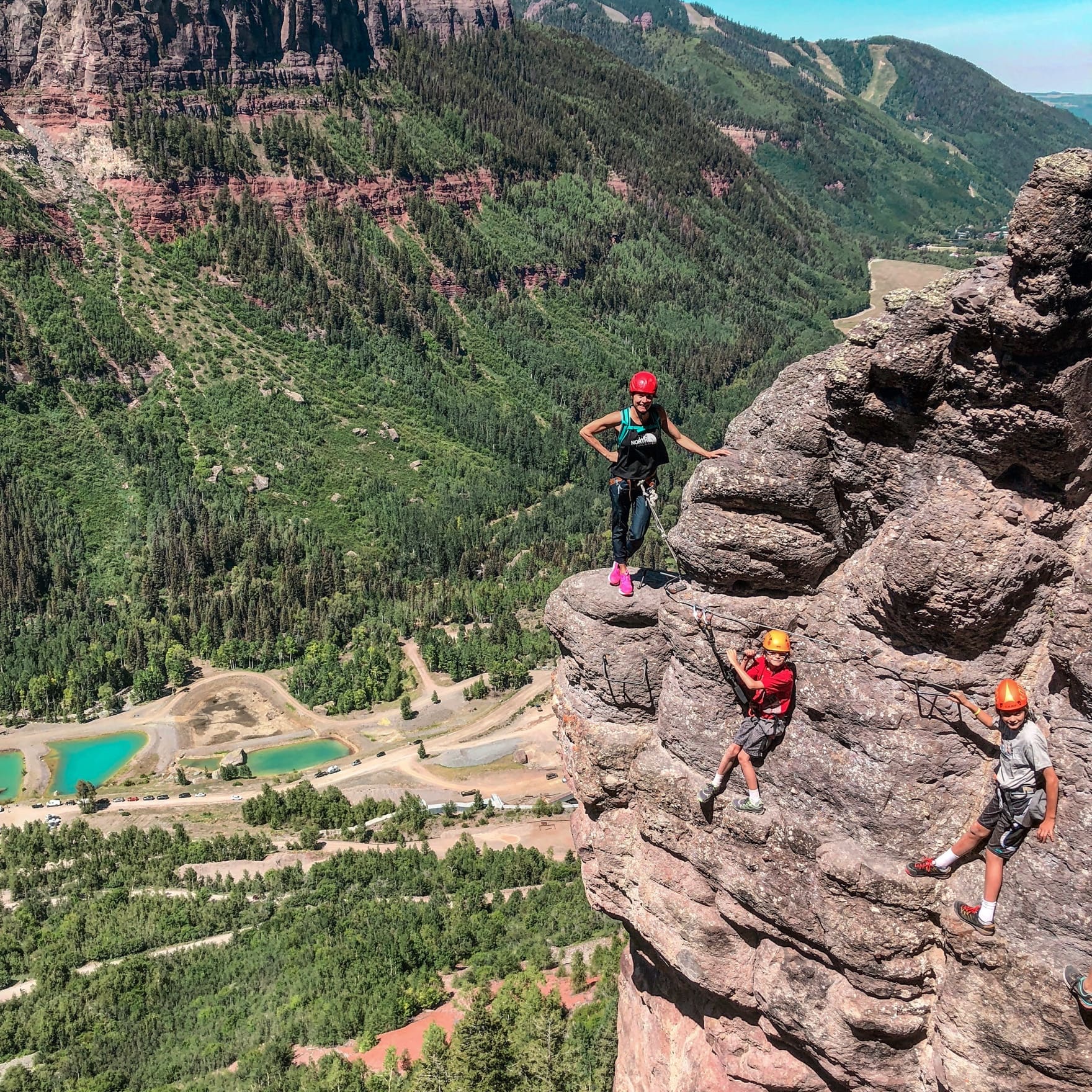
How do the challenges you face in the mountains compare to the challenges you face as a parent?
Parenting is the hardest thing I’ve ever experienced. It’s also full of rewards. When you’re in the mountains, it’s a selfish endeavor, and everything is really clear. And parenting is anything but clear. On an expedition, you have a goal and you do everything in your power to accomplish it. You suffer and have to adapt along the path, but the goal is logical and linear, black and white, clear and consistent. Raising kids is like having a thousand false summits on your path: “Oh, I got this. Oh no, I don’t.” I think you have to learn how to acknowledge your mistakes and apologize when you are wrong. A lot of life is learning how to let go of things.
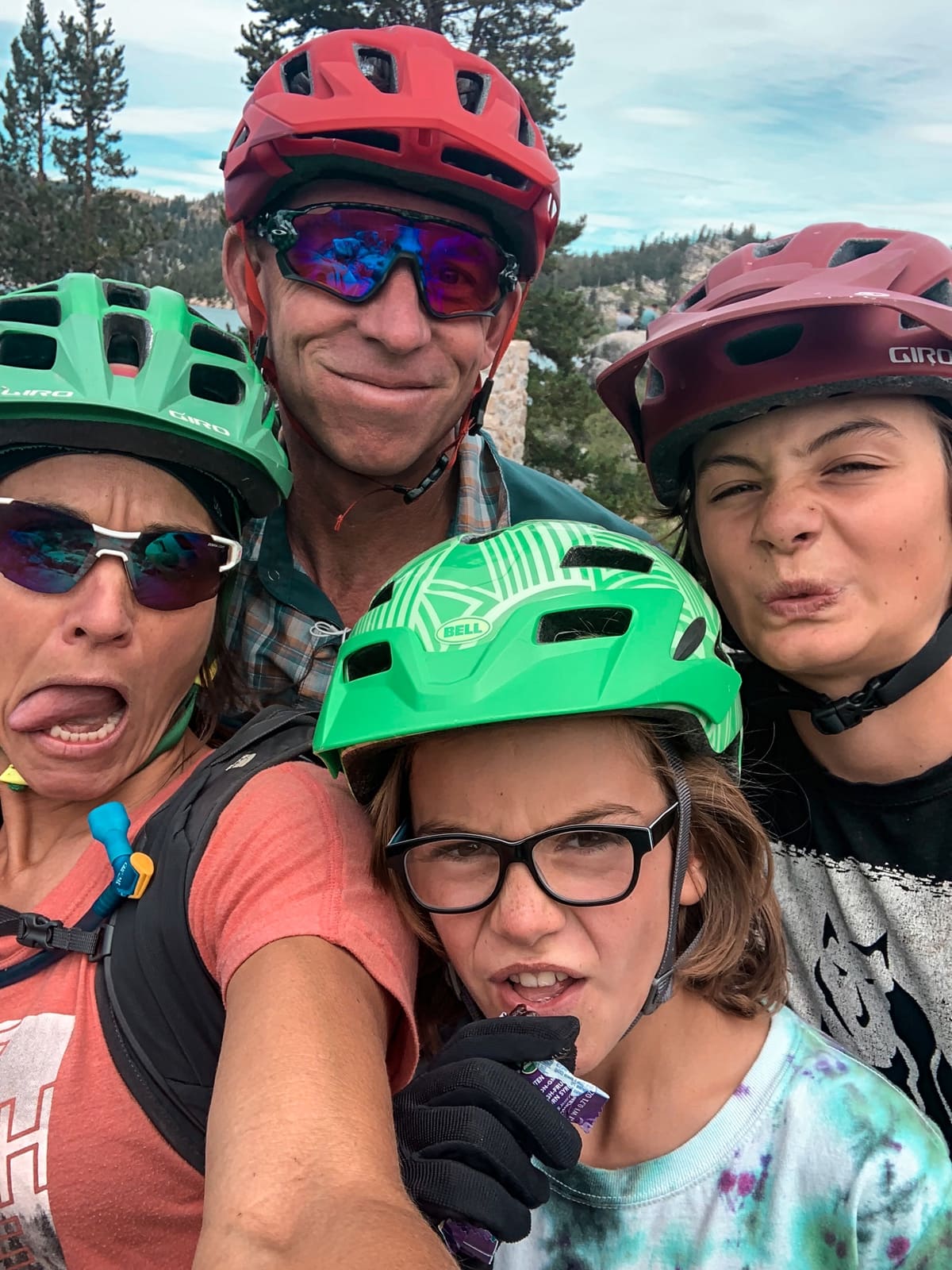
Did you encounter people early on who disapproved of your decision to pursue your career and be a mom?
Miraculously, when I first started, I didn’t get a lot of resistance. I think if I had, it would have broken me. The community I live in, my friends, and my parents…They were all so supportive. Then I climbed Everest in 2012, when my kids were 3 and 4. That was the first time I branched out globally, and that was the first time I got a lot of negative feedback that I was irresponsible. But at that point I was a few years into it, and I felt more confident about what I was doing. I also got a ton of positive feedback as well, and I decided to choose what was going to influence me at that point.
Is there anything you’ve learned from ski-mountaineering that has helped you in parenting?
The whole practice of breathing through things comes from climbing, for sure. In climbing, added fear is good but panic will kill you. So when my fear gets to the panic stage, I stop and change what I am looking at—bury my head in the snow and breathe to take the exposure away, then come back and try to tackle it again. I realized I needed that in my regular life, to disengage from whatever was making me crazy and frustrated. If I don’t take that time in the mountains, I know I’m going to do something stupid and it’s going to kill me. At home, I know I’m going to say something hurtful to myself or the person I’m engaged with—and often times that’s my kids.
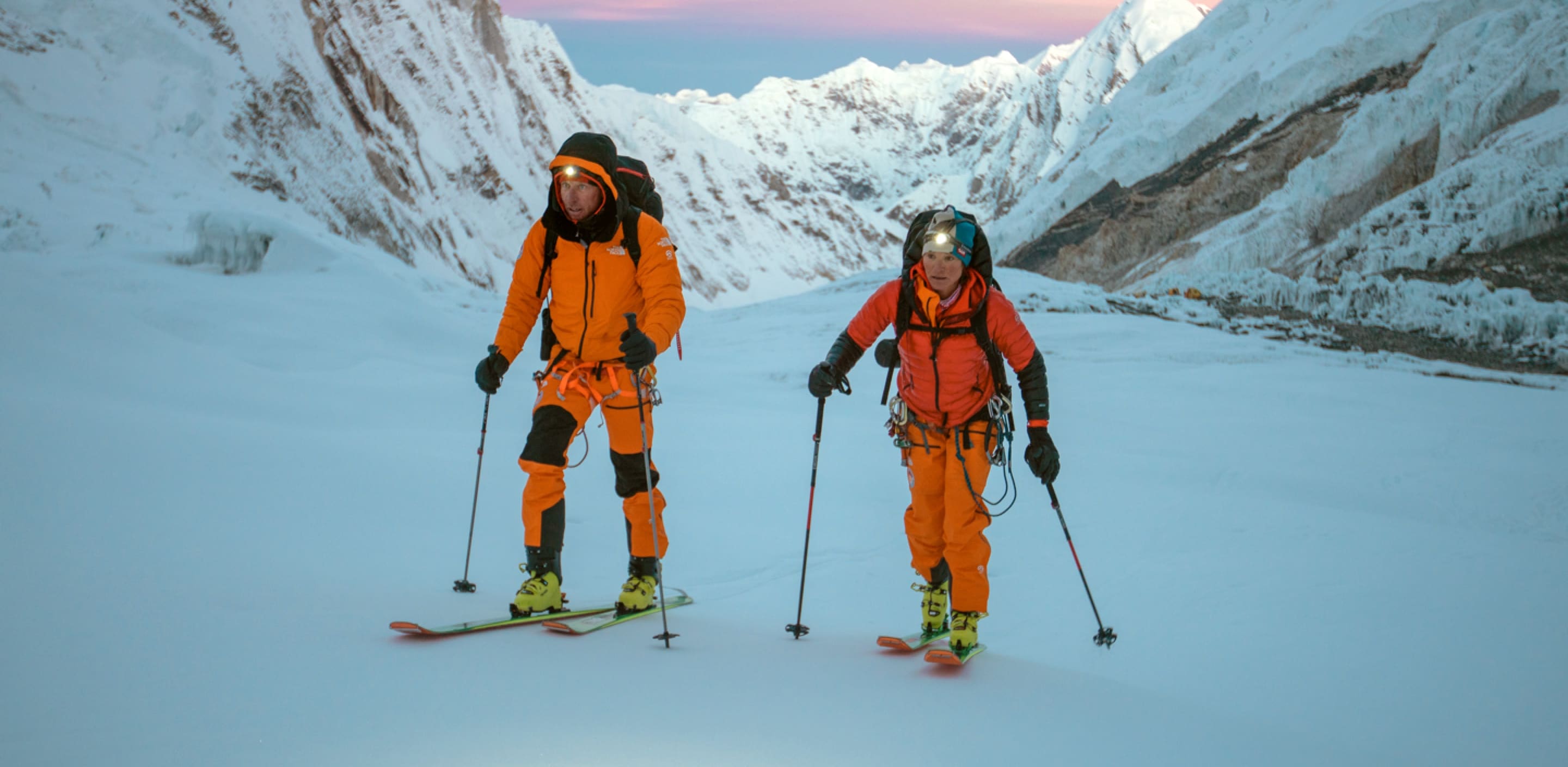
Do you ever find there’s a disparity between what other people see on the outside and what you feel like on the inside? I mean, you are a superhero, after all.
They are always going to be different. That was where a lot of my guilt came from—people thought I had my shit together and, inside, I felt like I was a disaster. As I’ve gotten older, I realized I’m probably never going to feel like I have it together. But if I did, I think things would be so boring. The bigger the disparity, the more exciting everything is.
Emotional stuff aside, there are physical and hormonal challenges of coming back from pregnancy and childbirth. How did those impact you?
It’s amazing that we moms make it through that first year. I felt literally insane. I felt lonely, depressed, depleted, and incapable. It’s a crazy time to go through, especially when you’ve been an athlete your whole life and you’re trying to be patient with your body. It’s really tough. I would say to any new mom to take it one day at a time. I got through it, but it took longer than I expected.
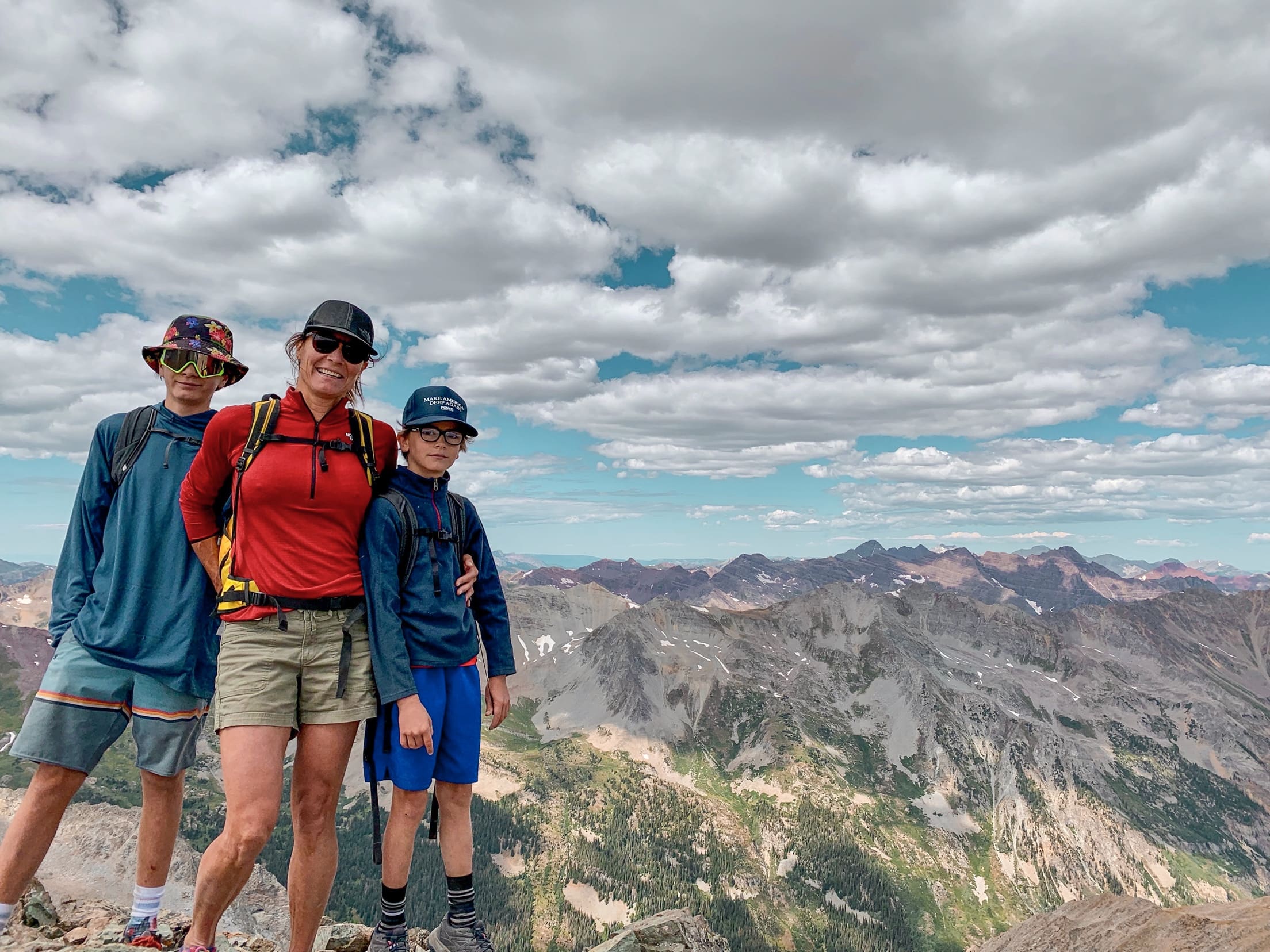
Is the adage “what doesn’t kill you makes you stronger” true in parenting as well?
Being a parent is my biggest resource of strength now. I know that if I can survive those early years, I’ve got this. I try not to forget or gloss over how tough that was. In my body, I have a different kind of strength and endurance than I had before kids. It’s as much mental as it is physical. It doesn’t matter if you’re an athlete or business owner or a stay-at-home mom—having that strength to draw from is powerful. It contributes to who you are, and it’s a matter of how you pull on that resource. As women claw our way toward equality, we need to understand that we are unique. We need to bring our femininity and our power, not just try to be like men.
